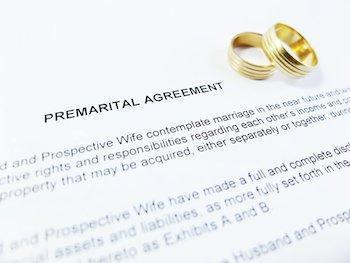The Link Between Prenups and Estate Planning
The most popular use of prenups is a situation where an individual guards against possible loss in a divorce. In fact, polls indicate that 80% of prenuptial agreements are designed to protect separate property. These documents, however, are growing in popularity as an estate planning tool across genders. According to the American Academy of Matrimonial Lawyers, the desire of more individuals to get married later in life means that individuals are bringing greater individual assets into their marriages.
 Prenuptial agreements are also popular with individuals getting married for a second time, since concerns about children from those prior relationships as well as concerns about separate assets factor into the equation here. When developed alongside wills and trusts, couples can walk away with important components of an estate plan. The reason to approach all of this planning together is that trusts and prenuptial agreements are considered contracts and can therefore override a will or give legal grounds to contest an existing will. Headed into remarriage? This is an important time to review all your estate planning materials.
Prenuptial agreements are also popular with individuals getting married for a second time, since concerns about children from those prior relationships as well as concerns about separate assets factor into the equation here. When developed alongside wills and trusts, couples can walk away with important components of an estate plan. The reason to approach all of this planning together is that trusts and prenuptial agreements are considered contracts and can therefore override a will or give legal grounds to contest an existing will. Headed into remarriage? This is an important time to review all your estate planning materials.
There are many different kinds of trusts that can be used for your individual needs. For example, since vacation and personal homes are often a point of contention between spouses, a personal-residence trust can outline the plans for what happens if a couple gets divorced. This personal-residence trust can be included within the prenuptial agreement. Especially when two families are being combined, it's a good approach to discuss existing financial situations and how a prenuptial agreement can lay the foundation for the future.
Those going into a remarriage tend to be more amenable to a conversation about a prenup, and it can be an important document to draft for both people in the marriage. For more information about prenuptial agreements, contact a DuPage County estate planning lawyer.

 630-665-2500
630-665-2500







